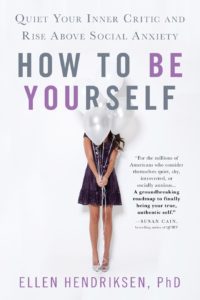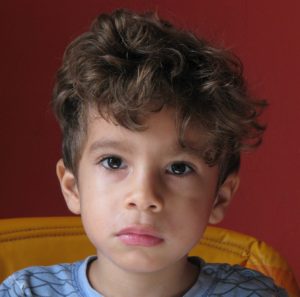Boys Need Better Access to Mental Health Care. Why Aren’t They Getting It?
 Mental health has become a crisis among America’s youth, and experts say the unique challenges and needs of young men are not receiving enough attention. Read more ›
Mental health has become a crisis among America’s youth, and experts say the unique challenges and needs of young men are not receiving enough attention. Read more ›
 Mental health has become a crisis among America’s youth, and experts say the unique challenges and needs of young men are not receiving enough attention. Read more ›
Mental health has become a crisis among America’s youth, and experts say the unique challenges and needs of young men are not receiving enough attention. Read more ›
 Fifteen million Americans suffer from a diagnosable form of social anxiety, and millions more suffer from less severe but related phobias. Anxiety can be debilitating for people when it starts to undermine their daily lives.
Fifteen million Americans suffer from a diagnosable form of social anxiety, and millions more suffer from less severe but related phobias. Anxiety can be debilitating for people when it starts to undermine their daily lives.
Ellen Hendriksen is a clinical psychologist, a researcher at Boston University’s Center for Anxiety and Related Disorders, and she’s also the author of How to be Yourself, a new book about the rise of social anxiety in America. Read more ›
 Think about the series of commands you might give your child on a school night: “It’s time for bed! Put away your toys, change into your PJs, and brush your teeth!” Maybe your child put away his toys and got into his PJs, but forgot to brush his teeth. If your child frequently loses track of tasks like these, it’s possible he may struggle with working memory. Read more ›
Think about the series of commands you might give your child on a school night: “It’s time for bed! Put away your toys, change into your PJs, and brush your teeth!” Maybe your child put away his toys and got into his PJs, but forgot to brush his teeth. If your child frequently loses track of tasks like these, it’s possible he may struggle with working memory. Read more ›
 Does your child have a hard time keeping one bit of information in mind while he’s doing something else? For example, if he’s helping make spaghetti and the phone rings, does he forget he needs to go back and keep stirring the sauce? If he often has trouble with such tasks, he might have working memory issues. Read more ›
Does your child have a hard time keeping one bit of information in mind while he’s doing something else? For example, if he’s helping make spaghetti and the phone rings, does he forget he needs to go back and keep stirring the sauce? If he often has trouble with such tasks, he might have working memory issues. Read more ›
 A new study published in the Journal of the American Medical Association shows how the effects of childhood trauma persist and are linked to mental illness and addiction in adulthood. And, researchers say, it suggests that it might be more effective to approach trauma as a public health crisis than to limit treatment to individuals. Read more ›
A new study published in the Journal of the American Medical Association shows how the effects of childhood trauma persist and are linked to mental illness and addiction in adulthood. And, researchers say, it suggests that it might be more effective to approach trauma as a public health crisis than to limit treatment to individuals. Read more ›
 Patricia Jennings, associate professor at the University of Virginia and author of the new book The Trauma-Sensitive Classroom, says that childhood trauma can have severe immediate and long-term consequences for students’ cognitive, social and emotional development. Read more ›
Patricia Jennings, associate professor at the University of Virginia and author of the new book The Trauma-Sensitive Classroom, says that childhood trauma can have severe immediate and long-term consequences for students’ cognitive, social and emotional development. Read more ›
 Children who are suicidal and victims of trauma, especially those with PTSD, pose an especially difficult challenge for psychiatrists. Trauma, suicidality, and self-harm often present together, and they might heighten the risk of treatment. Read more ›
Children who are suicidal and victims of trauma, especially those with PTSD, pose an especially difficult challenge for psychiatrists. Trauma, suicidality, and self-harm often present together, and they might heighten the risk of treatment. Read more ›
 Your Psychiatrist Is Your Partner in This Process
Your Psychiatrist Is Your Partner in This ProcessAs a psychiatrist practicing for almost a decade, I would encourage you to view your psychiatrist as your partner in this process. An initial consultation can fulfill many other useful functions besides the possible generation of a prescription. It provides an understanding of what’s going on with your child within a larger context, whether your child has a clear diagnosis or not.
The psychiatry team’s medical training leads to a deep understanding of the mind-body connection and the interactions between mental and physical health. I have been able to help families to develop a comprehensive treatment plan and a personalized road map to determine recommended benchmarks for various interventions, including but not limited to medication. It is very helpful to establish a relationship with families well before symptoms escalate, in hopes of averting a crisis and getting the child back on the right road of growth and self-discovery.
An initial consultation, while a significant investment of time and resources, can help right the developmental course and prevent a lot of twists and turns in your child’s mental health journey.
Developing a decision tree to determine whether or not to medicate your child is complicated, and is not a decision I take lightly in my role as a physician. That being said, medications are always one of the options when there is functional impairment: when social/family relationships are at stake; academic functioning or academic placement is at risk; or the internal experience of a child is adversely impacting their ability to grow and develop in an age- or ability- appropriate manner.
2. Does an appointment with a psychiatrist always result in a prescription?
Consulting with a psychiatrist does not mean that your child will end up on a medication. Consider it a conversation about your child that can empower you with choices.
3. Will medication affect my child’s brain development?
It has always to be weighed against the current risk/ distress that the child and family are under.
4. Could my child become “addicted” to the medication?
The term “addicted” means using something to get a high from it. Most (not all) psychiatric medications do not produce a high and are therefore not addictive.
Consulting with a psychiatrist for your child or teen is an opportunity to detect stressors or illnesses early, potentially limiting the pain and impact of the illness for the entire family. As psychiatrists, we are here to support and partner with you throughout your child’s journey towards mental wellness. You are not alone. Contact us today to speak with a Care Coordinator.

Vidya Krishnan, MD, CHC’s Chief Psychiatrist and Medical Director, works with kids from a variety of backgrounds across the age and developmental spectrum, starting from grade school through young adulthood. She treats a wide range of mental health conditions that cause functional impairment and believes in a comprehensive approach to the diagnosis and treatment of mental health issues.
 Coping skills are a powerful way for all students to build resilience, self-awareness, and self-regulatory skills as they face the stressors of life. Learning how to positively cope empowers them to be self-reflective and take responsibility for their actions. Read more ›
Coping skills are a powerful way for all students to build resilience, self-awareness, and self-regulatory skills as they face the stressors of life. Learning how to positively cope empowers them to be self-reflective and take responsibility for their actions. Read more ›